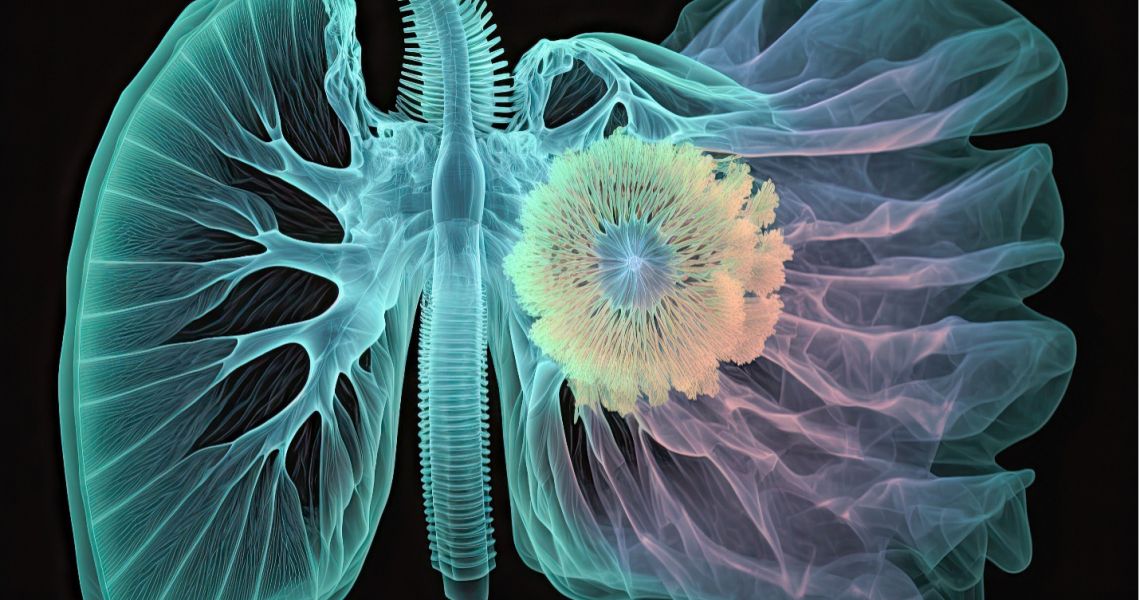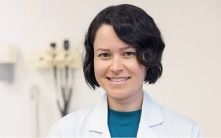Lung cancer is the leading cause of cancer death in the United States according to the American Cancer Society, accounting for about one in five cancer deaths. Each year, more people die of lung cancer than from colon, breast, and prostate cancers combined.
When CT scans or X-rays are ordered for an injury or illness unrelated to lung cancer, they often reveal an unexpected lung abnormality (nodule). For example, a CT scan of the abdomen could reveal a nodule in the lower lungs. Since these studies were ordered for other reasons, nodules found this way are called “incidental.” As many as 30 percent or more of CT scans detect an incidental lung nodule, and approximately 1.6 million patients are found to have lung nodules each year.
Although the majority of these incidental lung nodules are benign (not cancerous), a small subset will be lung cancer. At the start of the new year, the GW Medical Faculty Associates’ Division of Thoracic Surgery, in partnership with the GW Cancer Center, launched the GW Incidental Lung Nodule (ILN) Program to evaluate and monitor patients with lung nodules. The dedicated ILN program’s goal is to ensure malignant nodules aren’t missed, allowing lung cancers to be treated at an early stage when they are most curable.
Inside the Incidental Lung Nodule Program
Evaluating incidental nodules has become increasingly complex and might be overlooked when a radiologist is focused on the concern that initially brought the patient to the doctor. Studies show that approximately two out of three patients with lung nodules will not receive adequate follow-up. This represents missed opportunities to potentially save a life.
In most cases, the multidisciplinary nodule review board —which includes leading experts in thoracic surgery, pulmonology, interventional pulmonology, and chest radiology — evaluates patients and reviews their medical histories, imaging studies, and risk factors within a week of referral. The program ensures that patients found to have a lung nodule do not “fall through the cracks.” By addressing nodules early, the ILN program paves the way for timely and appropriate interventions.
The assessment of whether the nodule is likely benign or cancerous, and recommendations for further evaluation or follow-up, are then communicated to patients and referring providers at every subsequent step of the process. The ILN clinic provides customized care plans for patients with newly detected lung nodules and offers second opinions for previously assessed nodules.
Led by thoracic surgeon Sora Ely, MD, and patient navigator Sophia Ramsey, PA-C, the ILN program is the first step in effectively managing incidental lung nodules. “Having a specialized nodule board review for every case on a weekly basis, combined with a dedicated program lead who is a consistent and direct point of contact for the patients, is a game changer,” says Ely. The program accepts referrals from providers who discover nodules in their patients and want expert recommendations and appropriate follow-up.
“Patients who have been told that they have a lung nodule but have not received any follow-up or guidance from their physician may also self-refer to our clinic,” adds Ely. “We are really excited to offer this service to our patients and providers and anticipate that it will improve quality of care for this increasingly common issue.”
For more information, to refer a patient, or to self-refer, call 1-855-GWLUNGS, option 2, or visit www.gwdocs.com/ILN.






